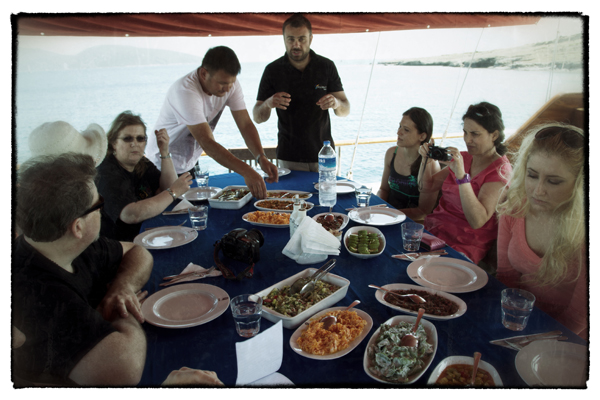
Meze being brought to table as Sidar, middle, explains to us what everything is. Photos by David Lansing.
The only think I don’t like about Turkish food is that there is always too much of it. When Captain Yorgo invited us on a blue cruise aboard his Turkish gulet, the Zeus, I asked Sidar if maybe we shouldn’t stop at a market and get some snacks to take with us.
“I think he’s got snacks and drinks on board,” Sidar said.
What an understatement. While we were cruising the coast, a cook was down in the galley making lunch for us. I’m thinking maybe sandwiches and some fruit or something, but then Captain Yorgo and his crew start bringing dishes to the table and it’s one meze after the other: the typical Turkish summer salad, coban salatasi, made with chopped tomato, cucumber, onion and peppers, which I love; kisir, a type of bulgur salad; a carrot salad called havuc salatasi; smoked eggplant and yogurt; chickpeas with pine nuts; and then the kebabs of chicken and the kofte meatballs and some wonderful marinated octopus dish.
It just kept coming and coming until there wasn’t any more room on the table for any more dishes and we had to start combining plates to make more room. See, the thing is that in Turkey, you would eat all this food slowly. You’d have some raki and a bite of bulgur salad and you’d chat with your friends for awhile and then maybe have a single stuffed grape leaf and another small sip of raki, and so it would go for three or four hours. You might even take a short nap in the middle of all this and then come back to the table. But Americans don’t do that. Not for nothing are we known around the world for our fast food. We fill our plate, down it all in 15 or 20 minutes, and move on to the next thing.
So when all this food was presented to us, we really didn’t quite know what to do. Some of us just looked at it. Some of us took pictures of it. Me, I took a single stuffed grape leaf, got a cold Efes, and sat back enjoying the sun, the water, and the company.

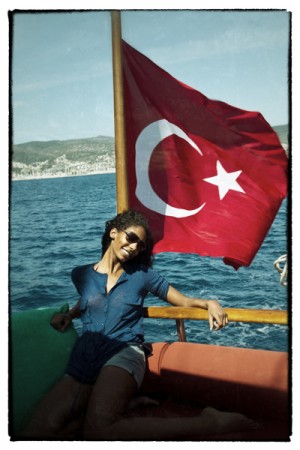
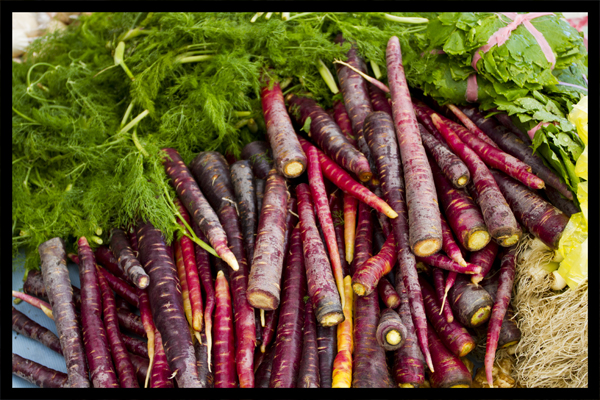
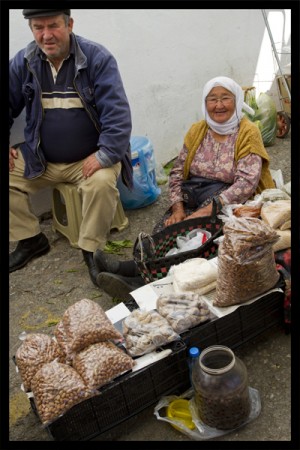
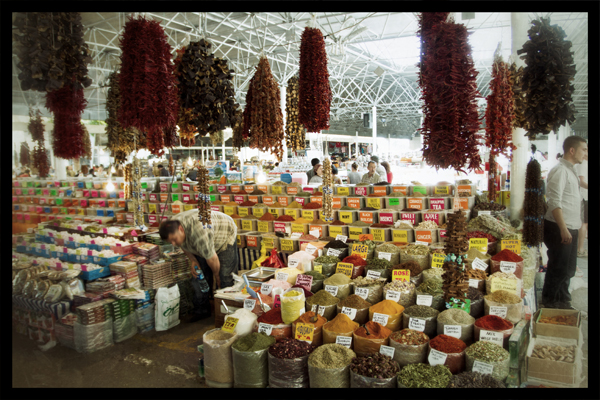
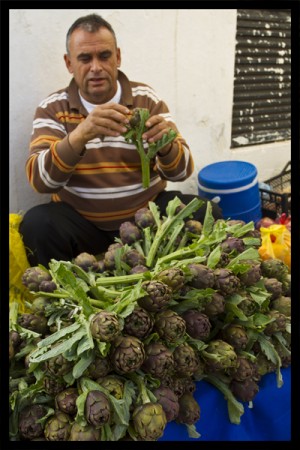
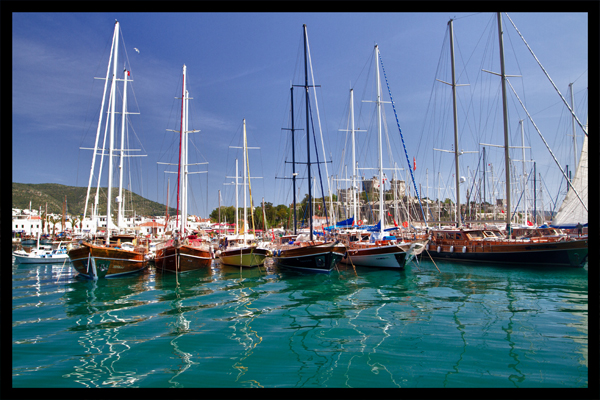
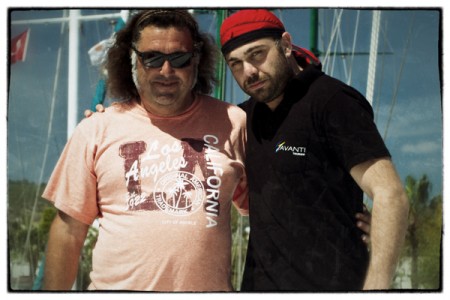
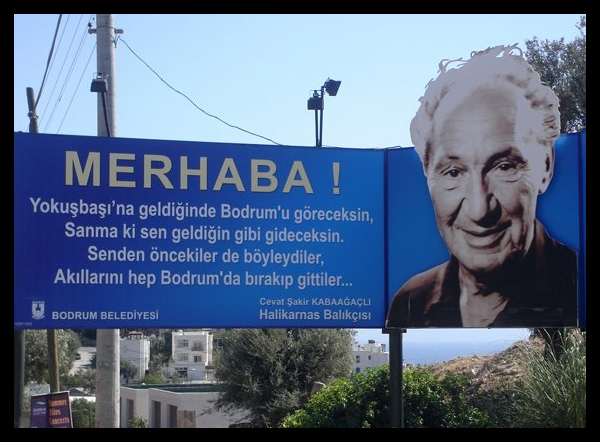
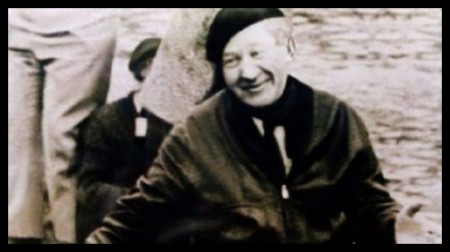
Recent Comments